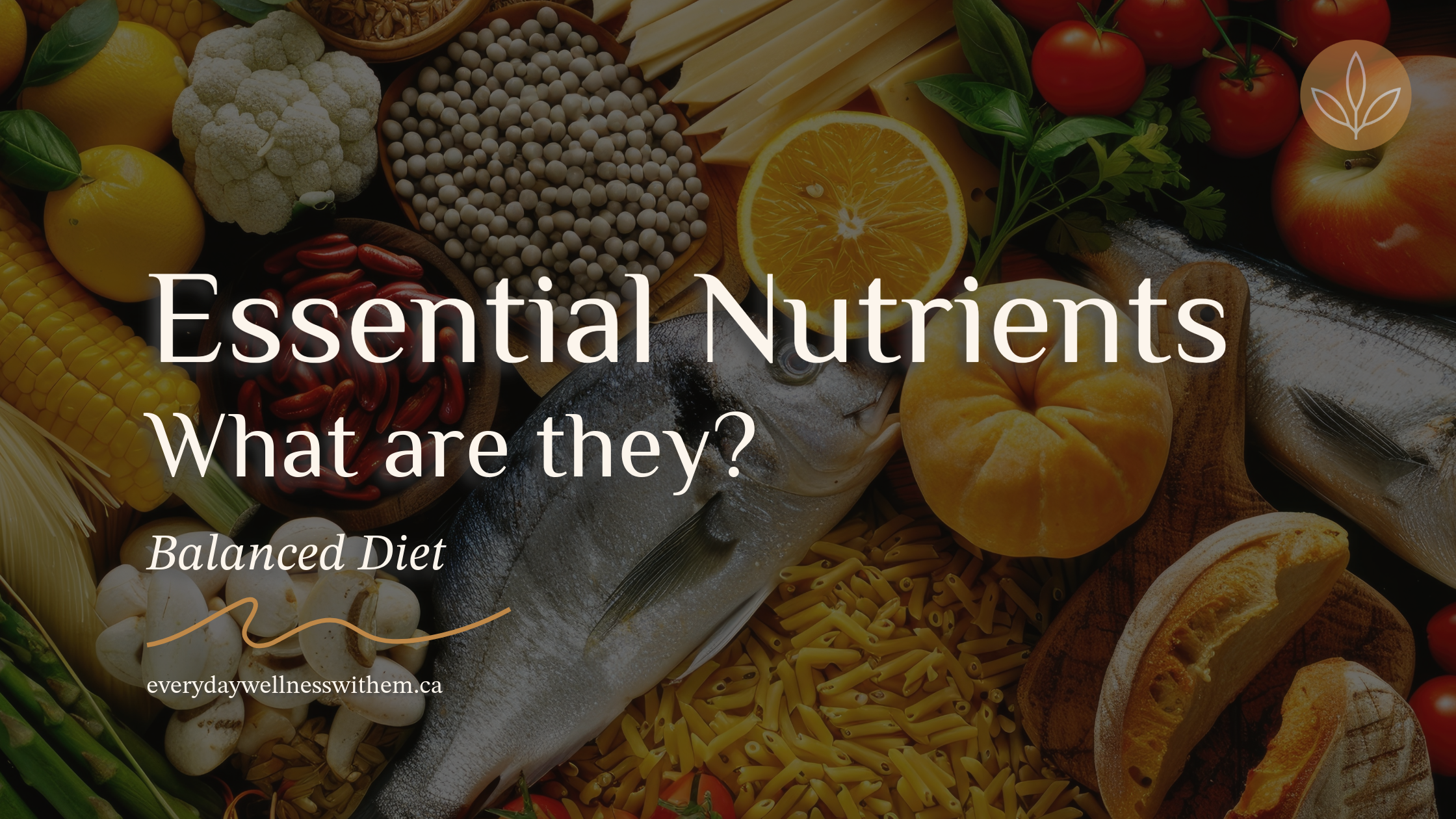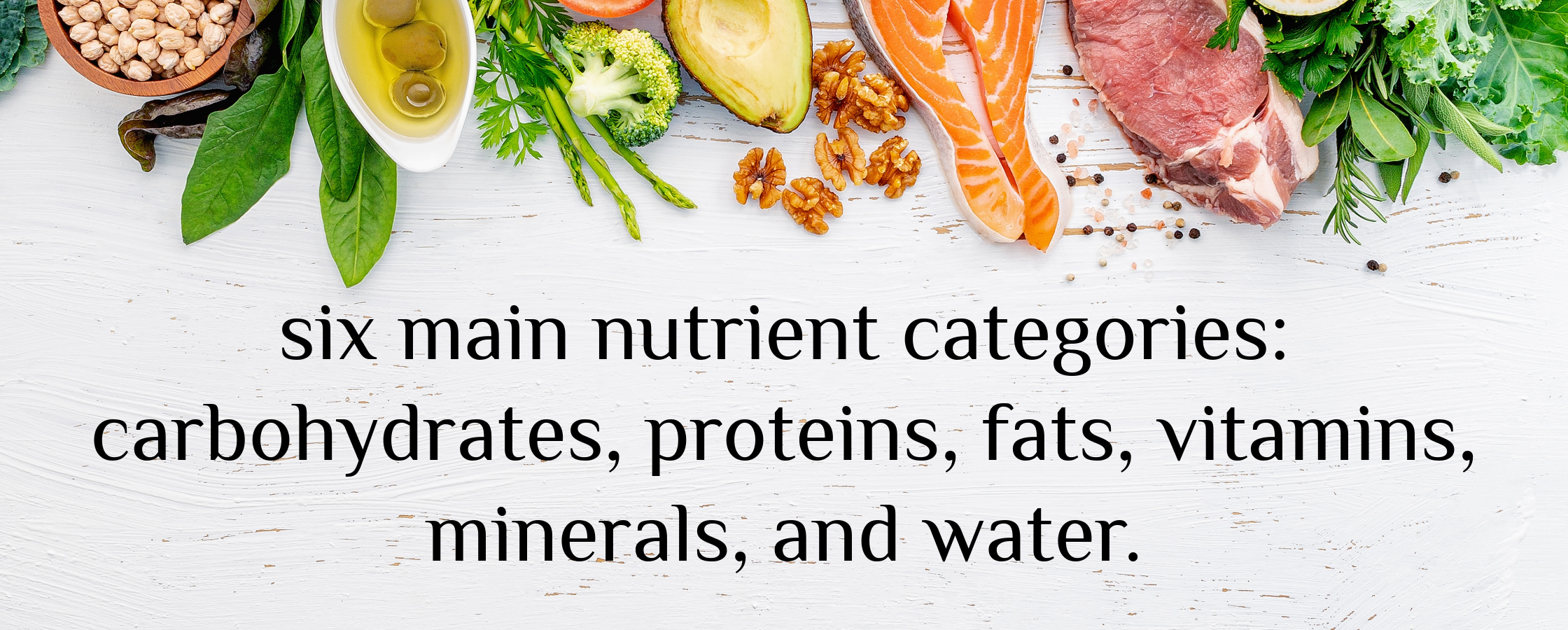What Are Essential Nutrients?
What is a Dietary Nutrient?
A dietary nutrient is a substance in food that provides essential nourishment for the body's maintenance, growth, and overall health.
Nutrients are critical for various bodily functions and are classified into six main categories: carbohydrates, proteins, fats, vitamins, minerals, and water.
Carbohydrates: These are the body's primary source of energy. They can be found in foods such as grains, fruits, vegetables, and legumes. Carbohydrates are divided into simple sugars and complex carbohydrates, which provide energy for physical and mental activities.
Proteins: Composed of amino acids, proteins are vital for building and repairing tissues, making enzymes and hormones, and supporting immune function. Sources of protein include meat, fish, dairy products, legumes, and nuts.
Fats: Despite their bad reputation, fats are essential for energy storage, hormone production, and nutrient absorption. Healthy fats can be found in avocados, nuts, seeds, olive oil, and fatty fish.
Vitamins: These organic compounds are crucial for numerous biochemical processes in the body. Each vitamin serves unique roles, such as supporting immune function, aiding in energy production, and promoting healthy skin and vision. They are typically obtained through a balanced diet rich in fruits and vegetables.
Minerals: These inorganic elements are essential for processes like bone health, nerve function, and fluid balance. Important minerals include calcium, potassium, iron, and magnesium, which can be sourced from various foods, including leafy greens, nuts, dairy, and meats.
Water: Often overlooked, water is a vital nutrient that supports every cellular function. It helps transport nutrients, regulate body temperature, and maintain hydration.
Incorporating a variety of these dietary nutrients through a balanced and diverse diet is key to achieving optimal health and wellness.
Why are Dietary Nutrients Important to your health?
Dietary nutrients play a crucial role in maintaining overall health and wellness. They are essential components that our bodies need to function optimally, supporting everything from energy production to immune system function. Here’s why dietary nutrients are so important:
1. Energy Production
Carbohydrates, proteins, and fats are the primary sources of energy for our bodies. Carbohydrates are broken down into glucose, which is used for immediate energy, while fats serve as a long-term energy reserve. Proteins also provide energy, particularly when carbohydrate stores are depleted.
2. Growth and Repair
Proteins are vital for the growth and repair of tissues. They help build and maintain muscles, organs, and skin. During periods of growth, such as childhood and pregnancy, the body's demand for proteins and other nutrients increases significantly.
3. Immune Function
Vitamins and minerals, such as Vitamin C, Zinc, and Vitamin D, are essential for a robust immune system. They help the body fend off infections and illnesses, playing a role in the production of antibodies and other immune cells.
4. Cognitive Health
Certain nutrients, including omega-3 fatty acids and B vitamins, are crucial for brain health. They support cognitive functions, mood regulation, and memory. A well-nourished brain is more resilient to stress and can function at its best.
5. Bone Health
Minerals such as calcium and phosphorus are fundamental to maintaining strong bones and teeth. Adequate intake throughout life helps prevent osteoporosis and bone-related issues, especially as we age.
6. Hormonal Balance
Fatty acids, vitamins, and minerals are vital for hormone production and regulation. They play significant roles in reproductive health, metabolism, and mood balance, impacting overall well-being.
7. Digestive Health
Dietary fibre, found in fruits, vegetables, and whole grains, is essential for digestive health. It promotes regular bowel movements, prevents constipation, and supports gut health by fostering beneficial microbes.
8. Reduced Inflammation
A diet rich in essential nutrients can help reduce inflammation and may reduce the risk of things like heart disease, diabetes, and certain cancers. Nutrients such as antioxidants protect cells from oxidative stress and inflammation.
Dietary nutrients are indispensable for our bodies to function effectively. Prioritizing a well-balanced diet that includes a variety of nutrient-dense foods is key to maintaining good health and preventing disease.
Looking to increase your nutrient intake with personalized recommendations?
Fill in the form below to book a free 15-Minute Nutrition and Lifestyle Consultation!




